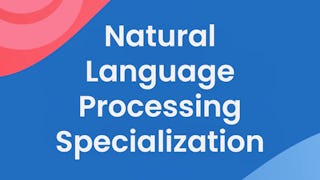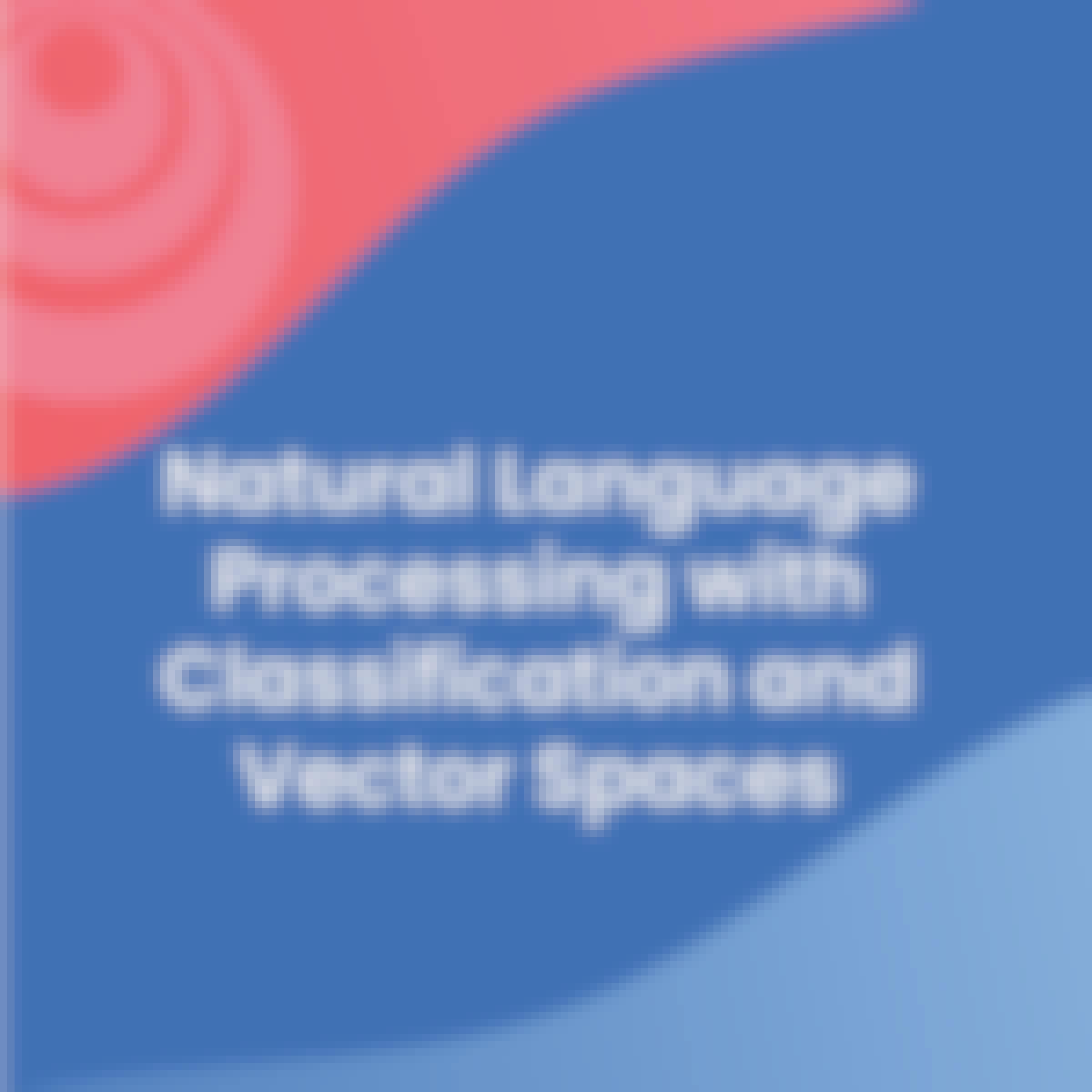Filter by
SubjectRequired
LanguageRequired
The language used throughout the course, in both instruction and assessments.
Learning ProductRequired
LevelRequired
DurationRequired
SkillsRequired
SubtitlesRequired
EducatorRequired
Explore the Computational Linguistics Course Catalog
 Status: Free Trial
Status: Free TrialVanderbilt University
Skills you'll gain: Prompt Engineering, ChatGPT, Artificial Intelligence, Large Language Modeling, Generative AI, Application Development
 Status: Preview
Status: PreviewUniversity of Pennsylvania
Skills you'll gain: Computational Thinking, Computer Hardware, Pseudocode, Algorithms, Problem Solving, Programming Principles, Computer Programming, Python Programming, Debugging
 Status: Free Trial
Status: Free TrialDeepLearning.AI
Skills you'll gain: Natural Language Processing, Markov Model, Supervised Learning, Large Language Modeling, Applied Machine Learning, Machine Learning Methods, Text Mining, Artificial Neural Networks, Dimensionality Reduction, Deep Learning, Regression Analysis, Feature Engineering, Algorithms, Bayesian Statistics, PyTorch (Machine Learning Library), Machine Learning Algorithms, Keras (Neural Network Library), Tensorflow, Artificial Intelligence, Data Processing
 Status: Preview
Status: PreviewUniversity of Washington
Skills you'll gain: Machine Learning Methods, Network Model, Deep Learning, Artificial Neural Networks, Supervised Learning, Reinforcement Learning, Neurology, Unsupervised Learning, Computational Thinking, Mathematical Modeling, Biology, Information Architecture, Linear Algebra, Probability & Statistics
 Status: Free Trial
Status: Free TrialGoogle Cloud
Skills you'll gain: Large Language Modeling, Prompt Engineering, Generative AI, Google Cloud Platform, Performance Tuning
 Status: Preview
Status: PreviewUniversiteit Leiden
Skills you'll gain: Language Interpretation, Translation, and Studies, Anthropology, Research Methodologies, Research, Liberal Arts, English Language, Psychology, Social Sciences, Cultural Diversity, Grammar, Sociology
What brings you to Coursera today?
 Status: Free Trial
Status: Free TrialSkills you'll gain: PyTorch (Machine Learning Library), Generative AI, Large Language Modeling, Natural Language Processing, Text Mining, Deep Learning, Artificial Neural Networks, Data Ethics, Feature Engineering, Machine Learning Methods, Statistical Methods
 Status: Free Trial
Status: Free TrialMultiple educators
Skills you'll gain: Pseudocode, Data Literacy, Algorithms, Dashboard, Data Mining, Jupyter, Correlation Analysis, Pandas (Python Package), Plot (Graphics), Web Scraping, Data Analysis Software, Data Visualization Software, Data Analysis, Statistical Programming, Data Science, Data Collection, Machine Learning Algorithms, Unsupervised Learning, Machine Learning, Project Management
 Status: Preview
Status: PreviewUniversity of Michigan
Skills you'll gain: Computational Thinking, Problem Solving, Data Analysis, Pseudocode, Algorithms, Analysis, Scenario Testing, Program Development, Computer Programming, Epidemiology, Public Health
 Status: Free Trial
Status: Free TrialUniversity of Washington
Skills you'll gain: Public Speaking, Oral Expression, Presentations, Persuasive Communication, Microsoft PowerPoint, Storytelling, Verbal Communication Skills, Peer Review, Performing Arts, Writing, Communication, Motivational Skills, Writing and Editing, Communication Strategies, Concision, Target Audience, Constructive Feedback, Non-Verbal Communication, Problem Solving, Empathy
 Status: Preview
Status: PreviewKarlsruhe Institute of Technology
Skills you'll gain: Natural Language Processing, Language Interpretation, Translation, and Studies, Artificial Neural Networks, Statistical Modeling, Machine Learning, Deep Learning, Performance Tuning, Vocabulary
 Status: Free Trial
Status: Free TrialSkills you'll gain: Natural Language Processing, Applied Machine Learning, Text Mining, Supervised Learning, Dimensionality Reduction, Regression Analysis, Feature Engineering, Bayesian Statistics, Machine Learning Algorithms, Artificial Intelligence, Probability & Statistics
Computational Linguistics learners also search
In summary, here are 10 of our most popular computational linguistics courses
- Prompt Engineering for ChatGPT: Vanderbilt University
- Computational Thinking for Problem Solving: University of Pennsylvania
- Natural Language Processing: DeepLearning.AI
- Computational Neuroscience: University of Washington
- Introduction to Large Language Models: Google Cloud
- Miracles of Human Language: An Introduction to Linguistics: Universiteit Leiden
- Gen AI Foundational Models for NLP & Language Understanding: IBM
- Data Science Foundations: IBM
- Problem Solving Using Computational Thinking: University of Michigan
- Dynamic Public Speaking: University of Washington










